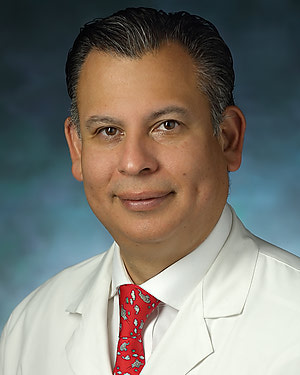Research Lab Results
-
David Celentano Lab
The David Celentano Lab studies behavioral and social epidemiology by integrating behavioral science theory and research with epidemiology methods. Our team directs epidemiological investigations and stages preventive interventions targeting HIV/AIDS and other sexually transmitted infections.
-
David Dowdy Lab
The David Dowdy Lab conducts research in the field of infectious disease epidemiology. We use an interdisciplinary approach that involves infectious disease modeling, health economics, classical epidemiology, and operational and implementation science. Much of our work explores the diagnosis and treatment of tuberculosis. We also have a longstanding interest in “translational epidemiology,” with a goal of developing methods to help medical professionals who use epidemiological data make decisions that are in the best interest of patients and public health.
-
Elizabeth Selvin Lab
The Elizabeth Selvin Lab examines the intersection of epidemiology, clinical policy and public health policy. One of our key goals is to use the findings of epidemiologic research to inform the screening, diagnosis and treatment of diabetes, cardiovascular disease and kidney disease. Much of our work looks at biomarkers and diagnostics related to diabetes and diabetes complications. Our findings — linking hemoglobin A1c (HbA1c) to diabetic complications and identifying the role of A1c in diabetes diagnosis — have influenced clinical practice guidelines.
-
Eliseo Guallar Lab
Research in the Eliseo Guallar Lab focuses on the epidemiology and prevention of cardiovascular diseases. We have a special interest in the roles played by mercury, arsenic, lead and cadmium in cardiovascular disease development. Our methodological interests include determining threshold effects in epidemiological studies and applying statistical methods to epidemiological problem-solving.
-
William Checkley Lab
Research in the William Checkley Lab explores the field of lung health, with an emphasis on the epidemiology of obstructive lung diseases as well as acute lung injury and mechanical ventilation. We also explore the interactions between nutrition and infection, and the impact of environmental exposures to health.
-
Lisa Maragakis Lab
Researchers in the Lisa Maragakis Lab are interested in health care-acquired infections and antimicrobial-resistant Gram-negative bacilli. We are particularly interested in the epidemiology, prevention and management of these infections.
-
Hopkins Epilepsy Epidemiology
The Hopkins Epi2 group studies risk factors for and implications of epilepsy in special populations. Ongoing research focuses on late-onset unexplained epilepsy in older adults, mortality, and sex and gender in epilepsy.

Principal Investigator
-
Thomas Quinn Lab
Research in the Thomas Quinn Lab encompasses epidemiology, pathogenesis and clinical features of HIV/AIDS internationally, which includes the interaction between STDs and tropical diseases on the natural history and spread of HIV/AIDS in developing countries. Our recent research has examined the viral kinetics and transmission probabilities of HIV among discordant couples with the subsequent design and application of interventions, including therapy to prevent transmission of HIV. Molecular studies have mapped the molecular epidemic of HIV on a global basis, linking virologic changes to the spread of HIV and measuring the demographic impact of the epidemic.
-
Richard Chaisson Lab
Research in the Richard Chaisson Lab primarily examines tuberculosis and HIV infection, with specific focus on global epidemiology, clinical trials, diagnostics and public health interventions. Our recent research has involved evaluating a molecular diagnostic test for tuberculosis in HIV patients; observing TB responses during treatment of pulmonary tuberculosis; and examining antiretroviral therapy adherence, virologic and immunologic outcomes in adolescents compared with adults in Southern Africa.
-
Rakhi Naik Lab
The Rakhi Naik Lab studies sickle cell disease. We focus on complications related to the disease, including chronic kidney disease and venous thromboembolism. By defining the risks and factors for diseases related to the sickle cell trait, we hope to improve genetic counseling and screening and treatment recommendations. Other research in the lab examines the epidemiology and unique mechanisms of thrombosis in patients with hemoglobin disorders. Specifically, we are trying to identify mechanisms of hypercoagulability and develop treatments for patients with hemoglobinopathies.
